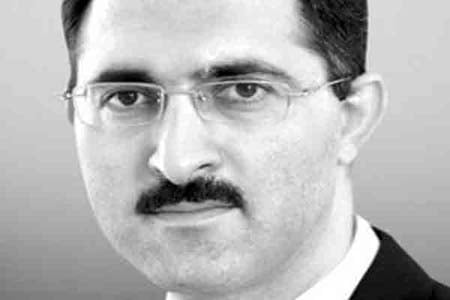Truth and reconciliation in post-Erdoğan era

Date posted: February 7, 2014
ABDULLAH BOZKURT
Given that a slow-motion civilian coup has been taking place in a European Union candidate country where the rule of law has been suspended, the principle of the separation of powers has been discarded, human rights abuses have become rampant and a vast shield of impunity has been awarded to government agencies that are tasked only to do Prime Minister Recep Tayyip Erdoğan’s own bidding, perhaps the only way for Turkey to get out of this debacle is to look forward to an era of reconciliation in a post-Erdoğan period.
One way to repair the damage dealt by the Erdoğan government in the last couple of years and to provide some form of closure for the dark period of Erdoğan’s third term in government is to set up a truth and reconciliation commission. Without discounting the role of the criminal justice system, a truth commission can be utilized in a complementary role to help citizens move on with their lives in Turkey after colossal wrongdoings in the government.
We know that many public officials are not comfortable with the way the Erdoğan government has been ransacking the bureaucracy and Parliament with blatant disregard for traditions, rules, regulations, laws and even constitutional articles. Yet, they are powerless to stop the excesses of the government as the judiciary and Parliament were rendered ineffective when the government simply stopped enforcing laws and constitutional articles.
The mass culling season orchestrated by the government in purging public workers and reassigning them en masse has even reached clerks, maintenance workers, receptionists and guards in government agencies. In the private field, the government exerts all forms of pressure to get people fired from their positions, mainly in the media, simply because it does not like the way they express their opinions. It abuses the government’s power to shut down companies with thousands of workers, intimidate them with tax audits, license suspensions and executive fines.
There is no doubt this era will be over sooner rather than later. But the wounds sustained during this period, especially in social unity and cohesion, will not be easy to patch up. In the post-Erdoğan era, all these violations have to be accounted for and a redress must be provided. The judicial system, after having been dealt so many blows by the current government, may not be competent enough to cope with the huge challenges. Therefore, establishing a truth and reconciliation committee may be the only viable solution allowing Turks to close the dark chapter in the recent history of the republic.
This does not mean of course that the key culprits will be let go with impunity as the criminal justice system must function to hold those political figures who held ultimate authority in directing McCarthyism in Turkey accountable in a court of law. This has been the common approach in the European continental system and Turks will adopt that course as well. During the landmark Ergenekon and Sledgehammer trials, we saw the criminal justice system deal with meddlesome generals and pushed the military back into their barracks. But that came with a hefty price of increased polarization in Turkish society.
Therefore, making use of a truth and reconciliation commission can play a role in reducing tension while helping Turks address past human rights violations as well as identify root causes of mistakes. It can promote the necessary reforms, including stronger checks and balances, in order to prevent similar tragic events from being repeated in the future. It will encourage victims to move forward while low-ranking civil employees will be emboldened to provide a comprehensive picture of how wrongdoings in the government bureaucracy were committed.
It has become apparent that Erdoğan and his loyalists have no problems instituting social exclusion on a mass scale for diverse groups in Turkey. Aziz Babuşçu, the powerful chairman of the İstanbul branch of the ruling Justice and Development Party (AKP) and Erdoğan’s point man for all public tenders and property redevelopment schemes in the city, said last year that the party was parting ways with Turkey’s liberals. “The Turkey that we will construct, the future that we will bring about, is not going to be a future that they will be able to accept,” he told party supporters in a meeting.
On Jan. 30, Babuşçu also admitted on live TV that the elimination of Hizmet movement sympathizers from state institutions started long before the breaking of a graft investigation on Dec. 17 of last year, which the government claims was an attempt to destabilize it with the help of the Hizmet movement. Therefore, it is not only liberals but moderate conservatives who are not aligned with the political Islamist ideology that Erdoğan represents who are being excluded in Turkey.
When you add nationalists, Alevis and social democrats to the list, according to leaked confidential profiling documents by the government, social cohesion in Turkey under the current government is at risk of collapsing. A truth commission will help reconstitute the sense of civic membership for these alienated and stigmatized groups while helping them to finally gain recognition and redress the injustice suffered.
A truth commission, which has been experimented with by some 30 countries in the world so far, is not a foreign concept in Turkey. It was done in Parliament in a different format and under customary names. In 2012, a Coup and Memorandum Investigation Commission was set up in Parliament and later gave a very comprehensive report after listening to hundreds of witnesses from the public and private sectors.
Similarly, the terrorism sub-commission of the parliamentary Human Rights Investigation Commission was also very helpful in providing a comprehensive picture of the toll of terrorism, mainly by Kurdistan Workers’ Party (PKK) militants in Turkey. The main difference between these and a truth commission is that parliamentary commissions have not included any civil society organizations in Turkey, although representatives from CSOs were heard in the parliamentary commissions.
The parliamentary Corruption Investigation Commission in 2003 had issued a 200-page report detailing the wrongdoings in previous governments’ eras. Therefore, Turks can tailor a truth commission to their own unique set of traditions, drawing on past experiences and adding new characteristics to the commission’s mandate to make a Turkish-style model. The commission needs more credibility in order to restore the sense of justice in society and to reconcile the nation with itself.
The common features of various types of truth commissions should be applied to the Turkish model as well. For example, the focus must be on the past in order to free the current political atmosphere from being held hostage to past events and the goal is to identify patterns rather than dwelling on individual cases. There should be a deadline to wrap up the work although extensions may be obtained. The post-Erdoğan government must stand by the commission to provide credibility, access to information and draw lessons in formulating new reforms. The final report to be issued by the truth commission will be important in formulating new reforms. Those who will follow up on the recommendation must be clearly identified in advance to prevent the report from being shelved on dusty racks, just like many other reports.
Erdoğan’s hateful speeches, repeated over and over again in public rallies, have inflicted deep wounds in Turkish society, pitting people against each other. Thank God this tension has not spilled over into violence yet, but there are growing signs that it can happen anytime. The harsh anti-riot police response to several protests over corruption indicate that Erdoğan will not shy away from picking a fight with the opposition, no matter what the eventual cost will be.
Hence we can anticipate that the social bill from the government’s oppressive and authoritarian rule will only grow on the eve of elections. The last straw by Erdoğan is to generate a series of pieces of legislation in Parliament to provide immunity from current and future prosecution, similar to how military rulers granted themselves immunity from prosecution before handing power over to civilian rule. This is yet another piece of evidence that we are nearing the end of the line. Things will get worse before they get better. But it will definitely improve as Erdoğan’s way of handling government affairs is no longer sustainable.
But whatever happens, Turks have to learn to let go of the past in order to save their future. Instead of adopting an adversarial position, they need to practice a compromise-seeking approach that would be better suited to governing a large country like Turkey with diverse ethnic, ideological and religious groups. A truth commission, among others, may help the nation achieve that balance. This is the only way to restore democracy, the rule of law and respect for human rights in Turkey.
Source: Todays Zaman , February 7, 2014
Tags: Democracy | Hizmet (Gulen) movement | Turkey |
























